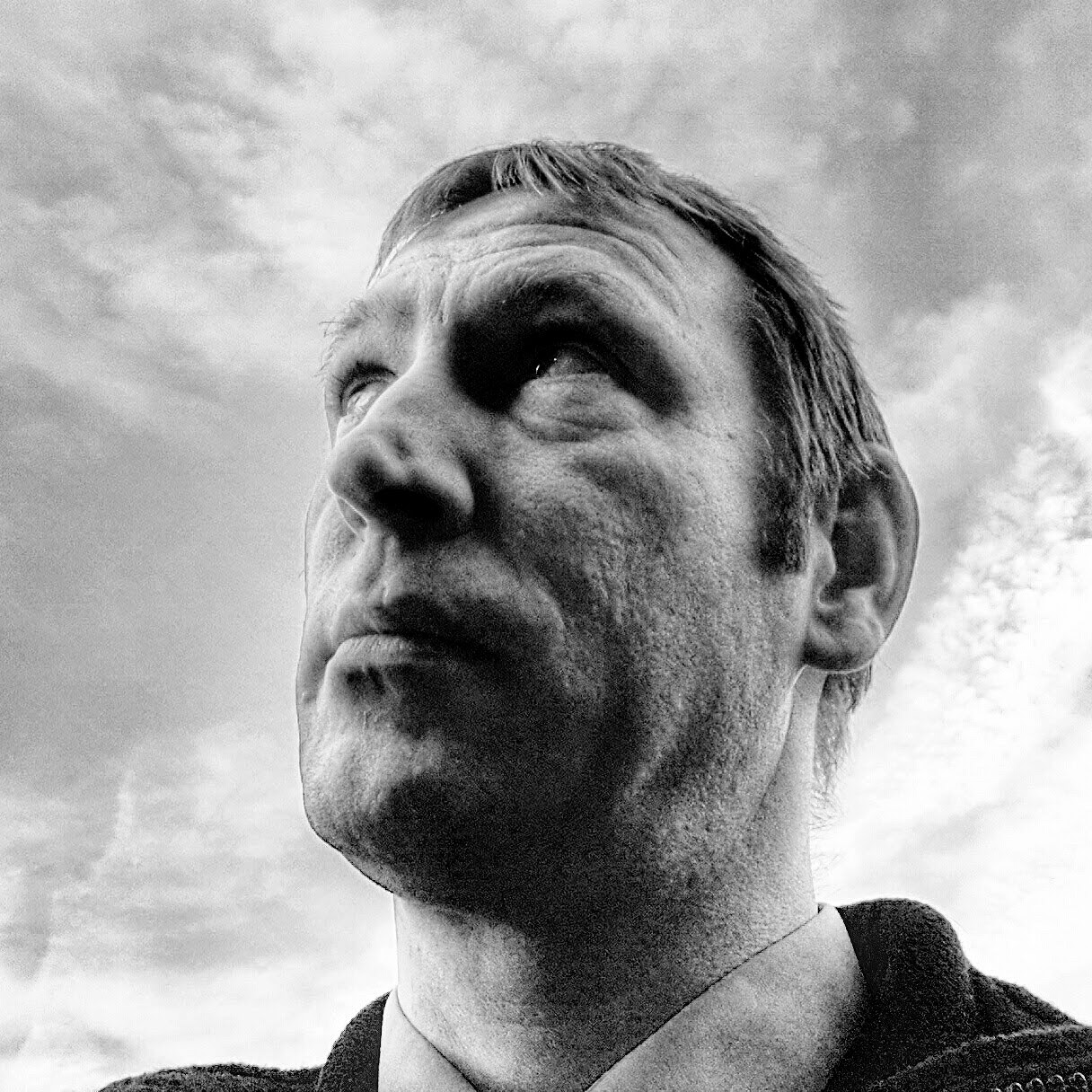And do believe that I, this random guy on the internet has a soul
I personally don’t believe that I anyone else has a soul. From my standup I don’t se any reason to believe that our consciousness and our so called “soul” would be any more then something our brain is making up.
I believe that my consciousness is a thing I can point to as being my essence. You could maybe call that a soul, or you could maybe not. Either way, my consciousness is the collective consciousness of countless single-celled organisms all working to make my singular self function. You could maybe call the manifestation of all these processes into a greater thinking singularity as a “soul”, more akin to the way in which a city might have a “soul” made up by the people that live in it. I don’t believe I have a ghost, and I believe that my consciousness is conditional, derived from my biology, but consciousness itself is as good as anything to call a soul
So I guess, in short, no XD
my consciousness is the collective consciousness
THE UNENLIGHTENED MASSES
I would never buy a Kia.
Most wrong take here. The Soul is an underrated vehicle.
There is at least as much evidence for dragons and magic and Greek gods as there is for a soul, so no.
It boggles my mind that out of the two options, someone would choose to believe in none of these when you could just as easily believe in all of them.
Much as I would love to believe in dragons, belief is not usually a choice.
Nah, I’m just a flesh computer.
Whenever I listen to that old-time 'a rock and roll I feel soothed, so I must.
No.
I self-evidently have a consciousness (cogito ergo sum), but logic, reason and the available evidence all point to that consciousness being a manifestation of brain activity and shaped by my genetics, environment and experiences, as opposed to an entity unto itself.
While I agree with you generally, “I think therefore I am” isn’t the big hitter it’s made out to be. I think it’s even followed in the original by a qualifier (don’t quote me though), and not as self evident as generally accepted.
It’s to do with there being no real way to determine if we are what we think we are. We could be a computer generated entity that’s programmed to experience.
Or we could be a brain in a vat, being fed computer generated experiences. There really is no way of knowing if we are actually humans experiencing life as we appear to be.
I expect that many here are aware of this concept, but my reason for laying it all out is for context of the rather succinct way it was once put to me -
“I think, therefore there is…something.”
Many think that cogito ergo sum somehow says or at least implies something about the nature of existence, when it in fact does not. So in that sense, it’s not the “big hitter it’s made out to be,” but that’s not a failure of the principle, but a failure of people to understand what it in fact says, or more precisely, does not say.
I suspect that the problem is that when people consider “I think, therefore I am,” they think that that “I” refers to the entirety of their self-image, and therefore says that the entirety of their self-image, in all its details, objectively exists.
That’s very much not what it means or even implies. It never did and was never intended to stipulate anything at all about the nature of this entity I call “I.” Not one single thing. All it ever said or intended to say was simply that whatever it is that “I” am, “I” self evidently exist, as demonstrated by the fact that “I” - whatever “I” might be - think I do.
It’s not a coincidence that Descartes himself formulated the original version of the brain-in-a-vat - the “evil demon.” He was not simply aware of the sorts of possibilities you mention - of the ramifications of the fact that we exist behind a veil of perception - he actually originated much of the thinking on that very topic. He was a pioneer in that exact field.
Cogito ergo sum doesn’t fail to account for those sorts of possibilities - it was explicitly formulated with those sorts of possibilities not only in mind, but at the forefront. And that’s exactly why it only stipulates the one and only thing that an individual can know for certain - that some entity that I think of as “I” self evidently exists, as demonstrated by the simple fact that “I” think I do, since if “I” didn’t exist, there would be no “I” thinking I do.
And more to the point, that’s exactly why it very deliberately says absolutely nothing about the nature of that existence.
Thank you for clarifying my clumsy attempt to lay this out, its great when I get a reply from someone who actually knows what they’re talking about.
Electric meat machines
Sounds like a band name
Here is an alternative Piped link(s):
Piped is a privacy-respecting open-source alternative frontend to YouTube.
I’m open-source; check me out at GitHub.
Define to me concretely what constitutes a soul, and I will tell you. Do cats have souls? What about frogs? Snails? Amoebas? Trees? Or people on life support?
I have a self-aware consciousness. If that’s what counts, then yes. However, this means that many people by the same definition don’t.
Define “soul” or the answer is entirely meaningless. I’m pretty sure I’m sentient and can feel emotions and think and reason.
deleted by creator
When I was younger, I became a “rational” and “atheist” type - I have to thank my parents for that. They were the scientific but spiritual type and allowed me to come to my own conclusions, rather than forcing religion down my throat. I’m glad, too. Because when I met religious people later on, I was able to look at the absurdity of it all and brush it off.
But now I’m older, and I sometimes wish this weren’t the case. I truly wish I could believe in a soul or a heaven/hell or reincarnation or any other form of higher being than us. I get it. I get why people do. The world is ruled by evil people who do terrible, evil things and this belief in a higher authority where they will one day be judged, and all the innocents who suffer will finally have peace… it’s the only way to cope with it.
I don’t believe in a soul, but I wish I did.
My thinking is the same and I get what you mean with wishing that you’d believe in a higher power but I’m not sure if believing in a higher power would actually put me at ease. A god would be something we have no control over and who, to some degree, would have to judge things as good or bad, even if they’re not objectively one or the other. It also kinda puts me at ease that life is just over when you die and there’s no deeper meaning to life. It means that I can live however I see fit and I don’t have to worry about going to heaven or hell or whether I’m following the path that was set out for me. I also think that it’s better to accept that bad things just happen, be that to you or other people, instead of just saying that some god wanted it to happen like that. It means that you actually have to work to fix issues and can’t just rely on some higher power to do it for you.
You raise very valid points. Those are absolutely concerns I might have too if I actually believed in a god - am I following all the rules, am I good enough to get the good ending etc etc. It’s good to not have illusions that a higher authority will take care of the problems of this world and actually work to fix it ourselves.
And in moments of hope, when things are improving, it seems we as humans are succeeding in that. But looking at the world now, those moments seem fewer and fewer. It gets harder to keep working on improving, or even thinking that we can improve.
But I don’t want to just say injustice is natural and bad things will always happen and cannot be stopped. Individually, yeah - there will always be people who do things that are not good. But on a societal scale? A better world is possible. In this aspect, having a belief in a higher authority, one you believe will be “good” and “just” can help centre you and give you hope. I guess, spiritual rather than actually religious. But I can’t even believe in that.
What I meant was that bad things will always happen simply because we’re so many humans and a few bad ones will always exist, not because it’s some sort of natural thing we can’t stop. I absolutely agree that we can, and should, always work to make the world a better place. Religion might help you stay hopeful in that aspect but it doesn’t help you in actually doing something to make that happen. Without a god, all issues are caused by humans, which also means that those issues can be fixed by humans. On one hand, it means that we need to do everything ourselves and don’t have someone or something helping us but on the other hand, it also means that we can fix everything ourselves and we don’t actually need any help.
No.
Souls are just faerie tales people tell themselves to avoid feeling angst around death. There is absolutely no evidence they exist and plenty of evidence they don’t.
I wish there was an active philosophy community on lemmy. I kinda miss r/Askphilosophy and r/askhistorians.
And to answer your question -
I don’t really know. I guess people belive in souls so as to eternalize themselves and thereby reducing their fear of death, knowing that their soul will be out somewhere instead of the idea that they will return to a state of nothing.
Yeah, I’d also really like a active philosophy community. The ones I found around here also didn’t seam to do question asking, more “hey, here is a interesting read”.
No. It’s more religion inspired fairy tale magic.














